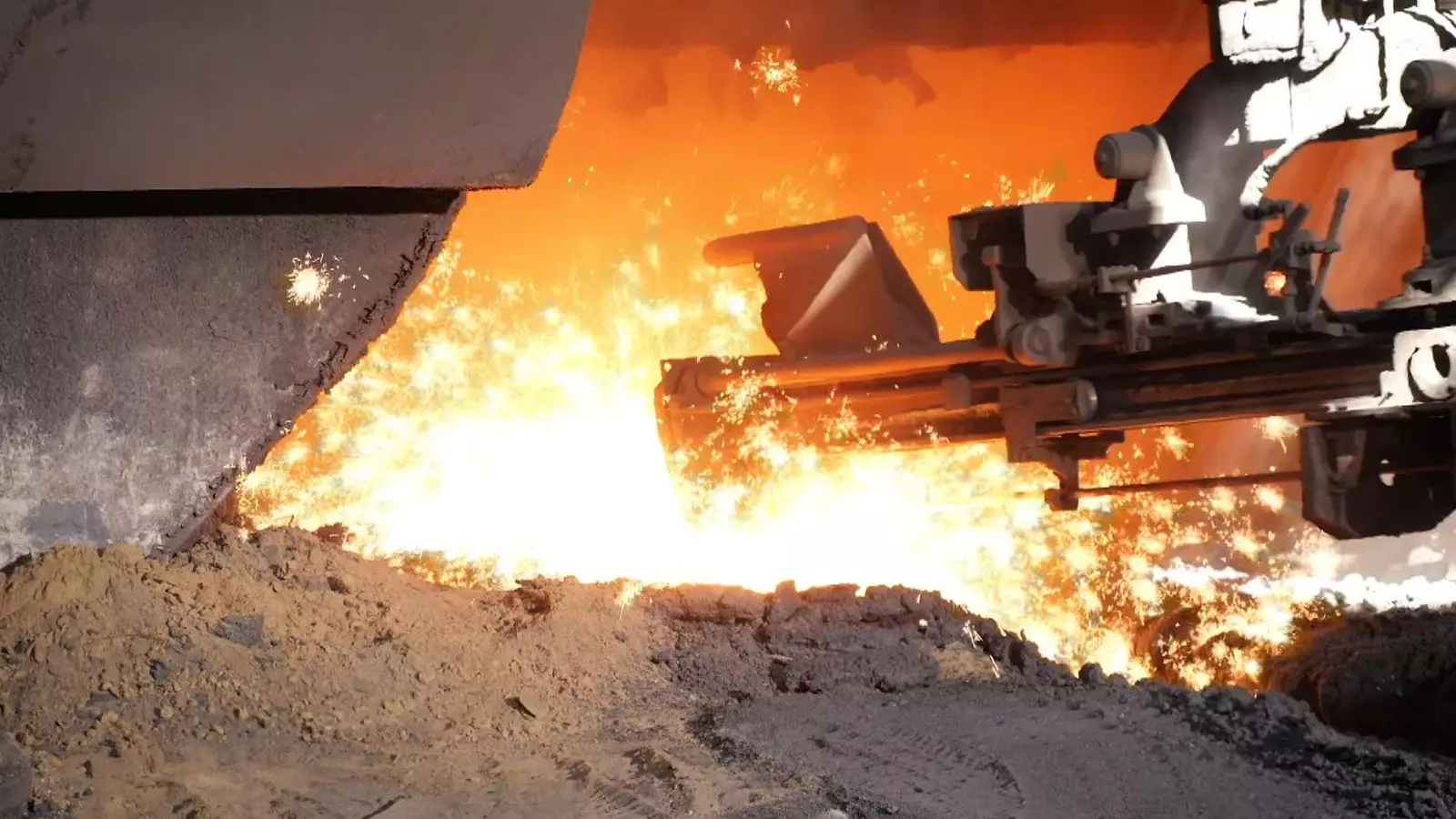As Britain finds itself perched on the precarious edge of a socio-economic cliff, the fate of the last operational blast furnaces seems ominously near. The cancellation by Jingye, the Chinese owners of British Steel in Scunthorpe, of essential orders for raw materials is more than just a corporate decision; it poses an existential threat to a steel-making tradition that is as old as the country’s industrial revolution. What once symbolized strength and resilience appears on the verge of collapse, revealing the stark vulnerabilities within Britain’s manufacturing sector.
The abrupt cessation of vital resources such as iron ore, coal, and other materials could lead to the immediate shutdown of operations, possibly even faster than anticipated. The reality that two of the last domestic sources for virgin steel could soon be silenced should ignite a national conversation about Britain’s industrial future and its reliance on foreign entities for vital commodities.
Governmental Inaction and the Call for Nationalization
The recent breakdown in negotiations between the British government and Jingye illustrates the underlying fragility of Britain’s industrial landscape. The government’s proposed £500 million for a transition to electric arc furnaces—an investment designed to invigorate a cleaner and more sustainable approach—was met with rejection. Jingye’s dismissal of financial aid for modernization emphasizes a disconcerting paradox: in a country battling against an impending trade war, the very lifeblood of its infrastructure relies on decisions made thousands of miles away.
The prospect of nationalization looms ominously, yet the specter of introducing a government-run steel entity comes with its own set of complications. Would taxpayers be on the hook for a potentially unprofitable business venture? The hesitation to move toward nationalization reflects the government’s fear of straddling an uncharted territory that could lead to public outcry against mismanaged resources. This caution could be interpreted as an abdication of responsibility in safeguarding a core sector of the economy.
The Steel Industry: A Microcosm of Broader Issues
The impending closure of the Scunthorpe blast furnaces also serves as an emblem of a much larger crisis. Britain’s industrial heart has long been under assault from both global economic fluctuations and local policy failings. The revival of protectionist sentiments fuelled by escalating geopolitical tensions—particularly under the shadow of a potential renewed trade war led by a recently re-elected Donald Trump—further complicates matters. Countries are being pushed to safeguard their own resources and ensure that they do not become entirely reliant on external markets for foundational materials.
In this context, the steel industry’s plight transcends mere economic analysis; it speaks volumes about the UK’s broader vulnerabilities. A nation that once prided itself on pioneering innovations in steel manufacturing now finds itself fighting for relevance against rising competitors who operate under more favorable financial conditions.
The Dangers of Complacency
While industry advocates like Gareth Stace highlight the urgent need for a concerted recovery plan, the lack of sustained action reflects a deep-seated complacency permeating British leadership. Discussions about the future of steel manufacturing cannot merely consist of reactive measures following impending crises. Instead, a proactive, robust strategy must be implemented to ensure the industry does not just survive but thrives within an increasingly competitive landscape.
The told narrative of steel being engineered from local ores is rapidly fading; if action is not taken soon, Britain might find itself entirely subjugated to the whims of global supply chains and foreign manufacturers. The tech-savvy, eco-conscious direction in which we are moving should not obscure the necessity for a resilient manufacturing base that could weather storms in both trade and policy.
Ultimately, the battle for Scunthorpe’s blast furnaces signals much more than the fate of two relics of industrial history. It is about the very essence of British industry, its place in the global economy, and a firm reminder of why we cannot afford to compromise our manufacturing sovereignty. The clock is ticking—once the last ember of steel goes cold, it may prove irretrievable.

Leave a Reply